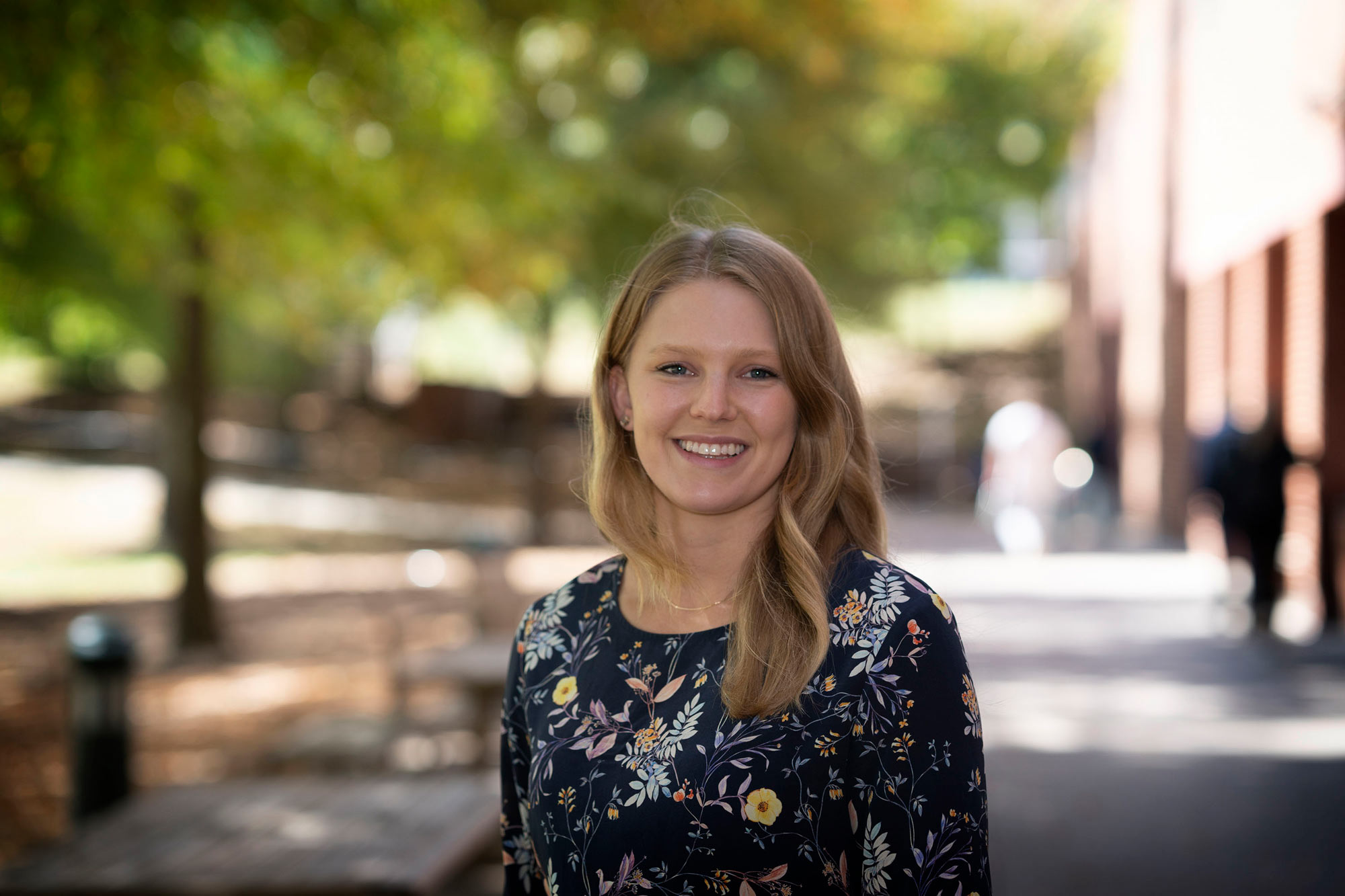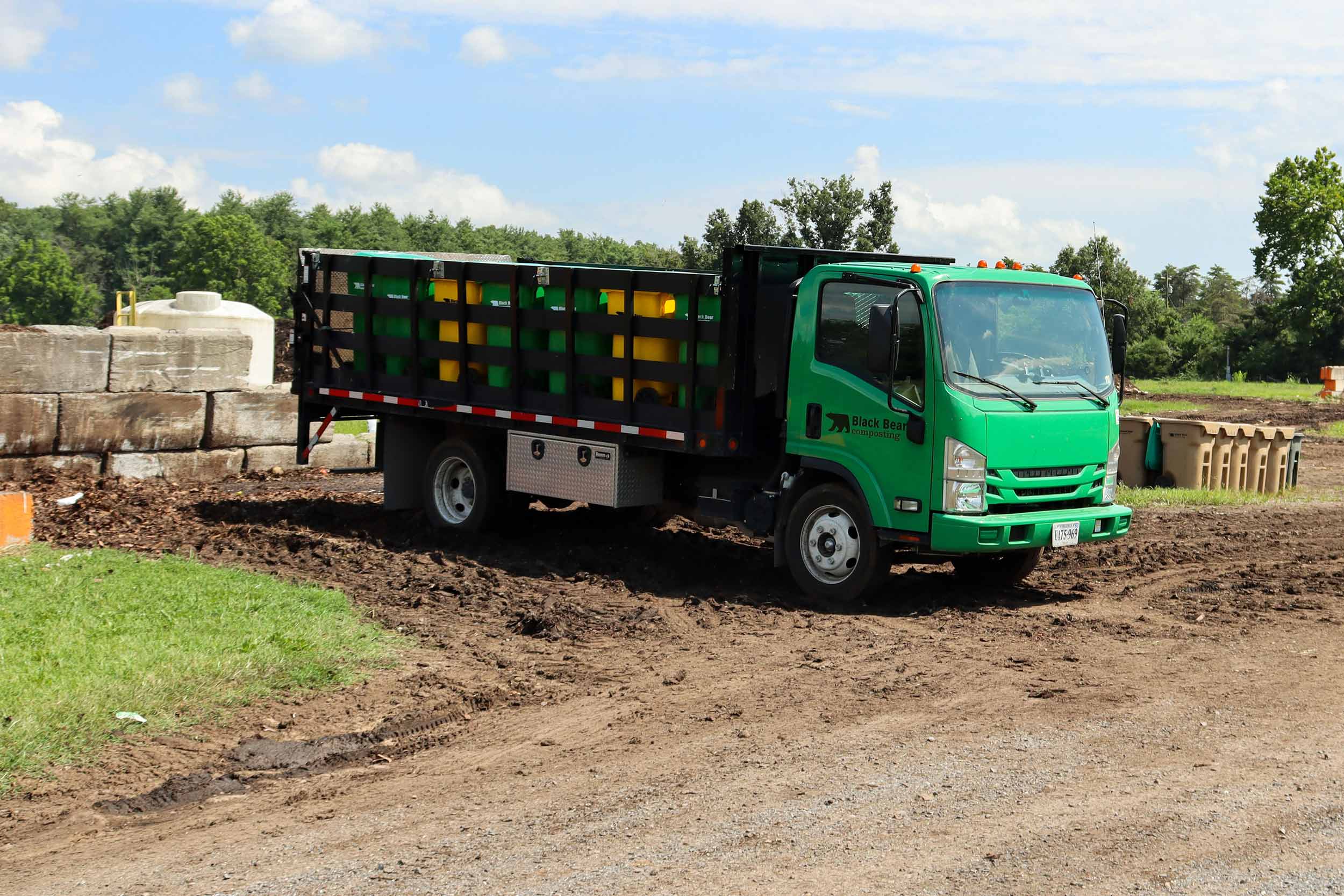Part of her job, she said, “is to make sure that we’re collaborating effectively with the University on the existing goals for sustainability and making sure that we’re doing our part in reaching those goals.”
Here’s how food leftovers later become compost for some of the University’s community gardens:
When a student puts a dish in the dish return, any leftover food scraps, napkins and other compostable waste items are sorted through by staff members and placed into a pulper, a machine that breaks up and removes the moisture from the waste. This material is then collected in a compost bin and placed on the dining hall’s loading dock.
A few times each week, Black Bear Composting picks up the bins and drives them to its location in Crimora, just 40 minutes away from Grounds in the Shenandoah Valley.
Upon arrival, Black Bear Composting workers mix the contents of the bins with the company’s special composting recipe. “The recipe calls for a lot of leaves and wood chips,” Baloga said. “Then, it will age for three months.”
After the initial aging process, Black Bear Composting runs several temperature and composition tests. If the material passes, it’s aged again for three more months.
The composting material is put through a machine that removes any larger fragments, which go through the cycle again to ensure all matter is used.
Finally, after months, the rich composting material is ready.
Baloga has only been UVA Dine’s sustainability manager for just over two years, but sustainability is not a new initiative at UVA Dine. In 2008, UVA Dine formulated its first sustainable food purchasing guidelines, and in 2010, the first full-time sustainability leader was hired.
Baloga works with Green Dining, a group of UVA Dine student interns that use their perspectives as students to assist UVA Dine in their sustainability prospects.
Green Dining has four main goals regarding sustainability in UVA dining facilities: responsible sourcing, waste minimization, promoting climate-friendly meals, and student engagement surrounding sustainable food topics.







